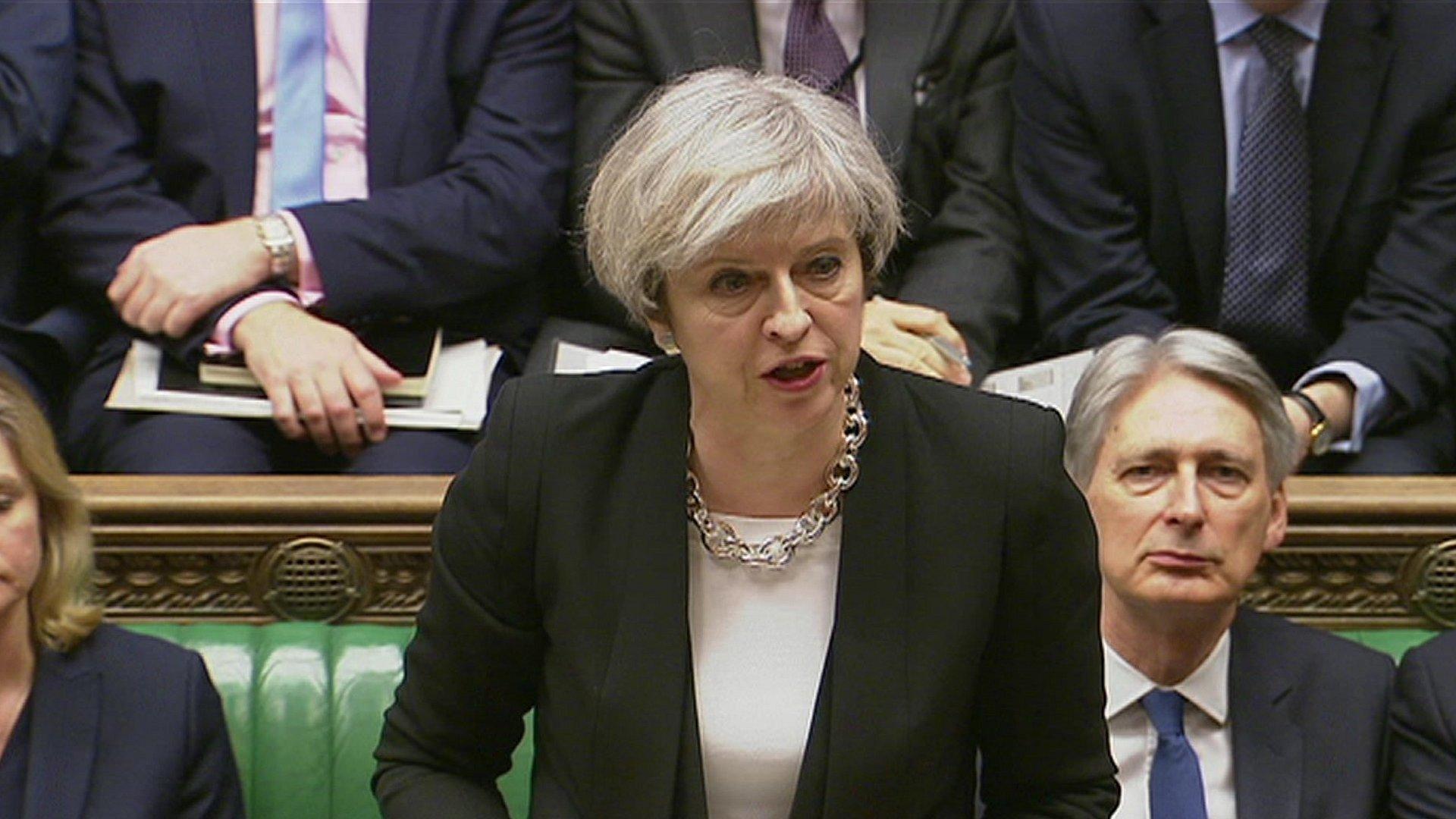Scottish independence referendum debate to resume next Tuesday
- Published
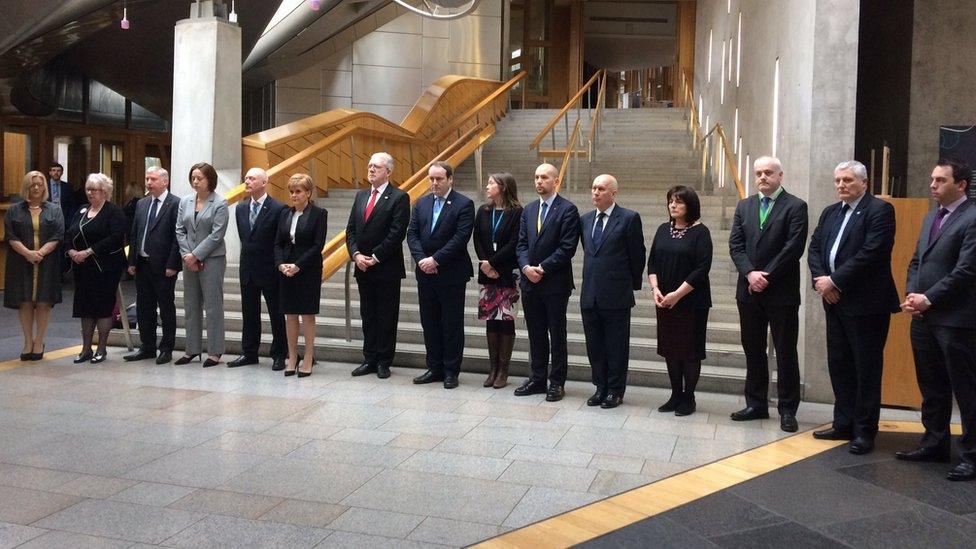
The first minister joined MSPs for a minute's silence as the parliament opened on Thursday morning
Scotland's political leaders have united at Holyrood to condemn the terror attack at Westminster.
Each party used their time at the weekly first minister's questions session to speak out against division and praise the emergency services.
Nicola Sturgeon said Scotland "stands in solidarity" with the "wonderful city" of London.
A debate on independence, suspended as the attack unfolded, will resume at Holyrood next Tuesday.
The debate and a vote on Ms Sturgeon's plan to ask Westminster for permission for an independence referendum was halted on Wednesday afternoon following the terror attack in London that claimed the lives of four victims and the attacker.
Parliament officials met on Thursday morning and decided that the debate and vote would be rescheduled for 14:20 on Tuesday of next week.
Presiding Officer Ken Macintosh opened the Holyrood session by noting that he had sent a letter to Commons Speaker John Bercow and London Mayor Sadiq Khan conveying "sympathy and sorrow" and "solidarity with fellow parliamentarians".
Ms Sturgeon then made a statement expressing her "shock and sadness at the heinous attack on Westminster".
She endorsed the words of Prime Minister Theresa May, noting that "we stand united in our core values of democracy, human rights and the rule of law - those values are strong, and they will endure".
She added: "We know that, at times like these, it can be all too easy to look for someone to blame. It is important therefore that we are very clear about this:
"Acts of terrorism are not the responsibility of any one faith or section of our society. The only people to blame for acts of terrorism are the individuals who plan and perpetrate them."
BBC correspondent Andy Moore reports on the aftermath of the Westminster attack
Eight arrests have been made in raids following the attack.
Seven of the injured are still in hospital in a critical condition, while a further 29 had received hospital treatment.
The attacker, who was British-born and previously investigated by the security services, drove a car along a pavement in Westminster, knocking down pedestrians before stabbing a policeman after the vehicle crashed.
He was then shot dead by police in the grounds of parliament.
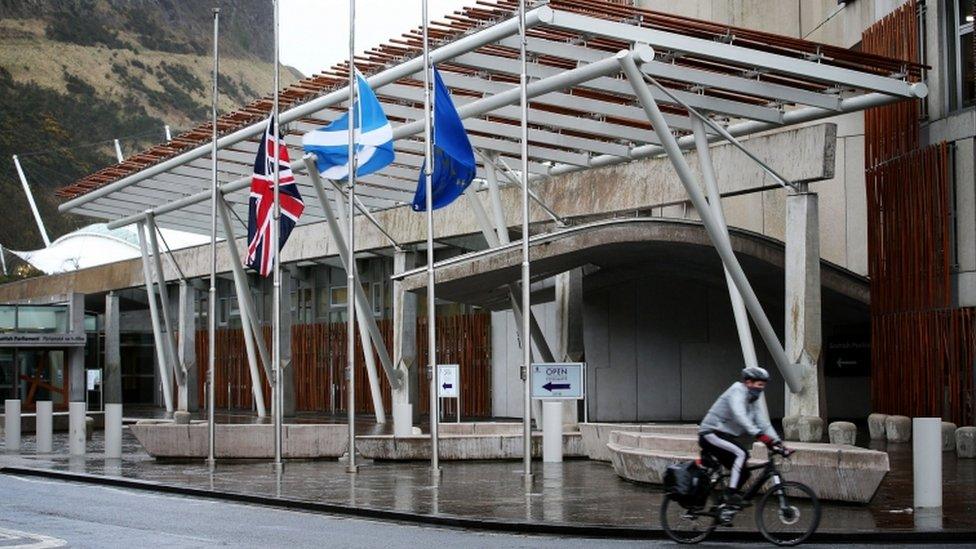
Flags are flying at half mast outside the Scottish Parliament
Holyrood's other party leaders also spoke out about the attack, in lieu of their normal questions on government policy.
Scottish Conservative leader Ruth Davidson said the "attack on our values" had "failed", adding: "Once again we express our gratitude to the police officers and security guards who at Westminster - and here at Holyrood - work to keep us safe, whose bravery we only truly appreciate at a time like this.
"People like PC Keith Palmer, who lost his life yesterday doing his job, doing his duty.
"The lesson here is not to tar one religion or one group in the coming days - but to tackle the evil of terrorist ideology itself. Not to vilify or blame whole communities, but instead to show we all stand united against terror, and stand united in defeating it.
'Open and tolerant'
Scottish Labour leader Kezia Dugdale echoed this point, saying: "No matter the religion, nationality or identity of the attacker, this cannot and must not turn into a war on any one community.
"Bringing people together must be part of the solution to tackling terror, rather than creating further division within communities.
"We must send a strong message that Britain remains an open and tolerant nation that is home to people of all faiths and nationalities."
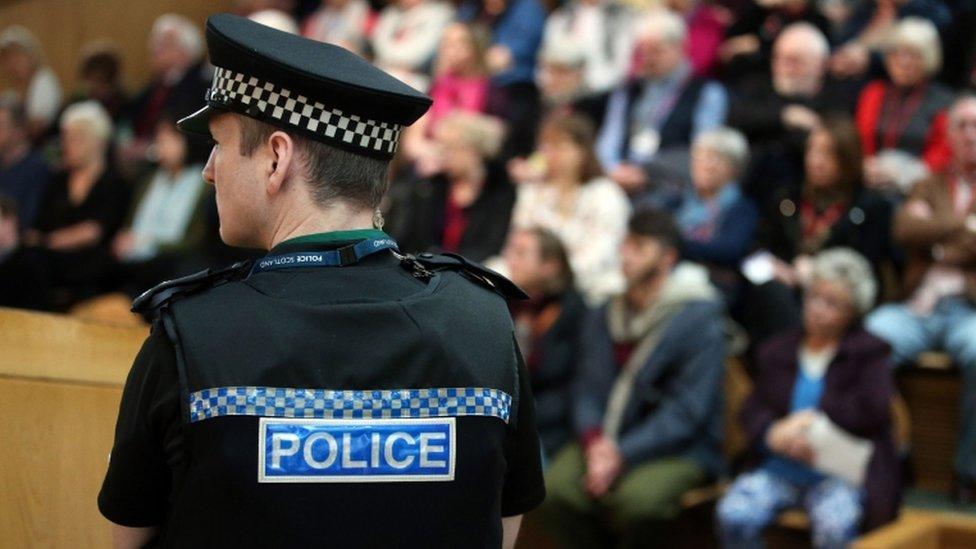
Scottish Green co-convener Patrick Harvie added his "deep concern" for all those affected by the attack, noting "respect and gratitude to all those who stepped forward, both bystanders who helped the injured and the emergency services who showed professionalism and dedication".
And Scottish Lib Dem leader Willie Rennie recounted that he would walk along the route where the attack unfolded on his way to work when he was an MP.
He said he wanted to be free to walk that route again, calling for a balanced response to the attack based on security and intelligence, but not fear.
Flags at the Scottish Parliament are flying at half mast as a mark of respect for the victims of the attack, and there has been an increased police presence in and around the parliament building.
Ms Sturgeon joined other MSPs for a minute's silence as the parliament opened on Thursday morning.
An email to MSPs, staff and Holyrood pass-holders from the Scottish Parliament chief executive's office said: "While there is no intelligence to suggest there is a specific threat to Scotland, Edinburgh or Holyrood, we have increased security with immediate effect at the Scottish Parliament as a precaution."
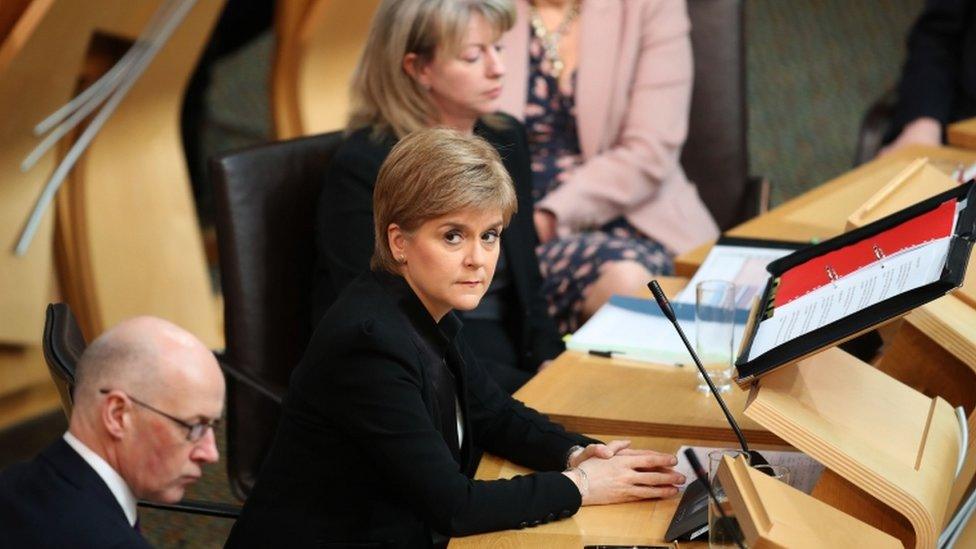
Nicola Sturgeon spoke of solidarity with the "wonderful city" of London
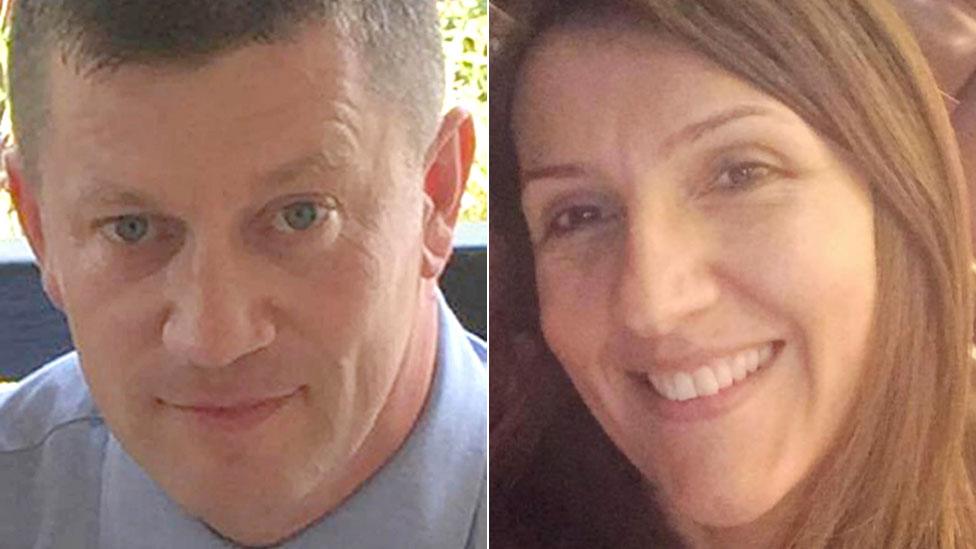
PC Keith Palmer and Aysha Frade were among those who died
Parliament officials had initially refused requests to suspend Wednesday afternoon's debate after requests from politicians including Scottish Conservative leader Ruth Davidson.
But Mr Macintosh later decided that news of the London attack was affecting the contributions of MSPs, and announced that the debate would resume at another time.
The decision was welcomed by Ms Sturgeon, but some MSPs - including Environment Secretary Roseanna Cunningham - were visibly angry at the decision. Ms Cunningham was later said to agree entirely with the suspension of the debate after learning the full details of the London attack.
However other MSPs, including Liberal Democrat Mike Rumbles, argued that halting the debate was effectively "giving in to terrorism".
Ms Sturgeon had been expected to win the backing of a majority of MSPs for her plan to ask the UK government for a section 30 order, which would be needed to hold a legally-binding referendum on independence.
The UK government has already said it will block the move, and will not enter into any negotiations until after the Brexit process has been completed.
- Published20 March 2017
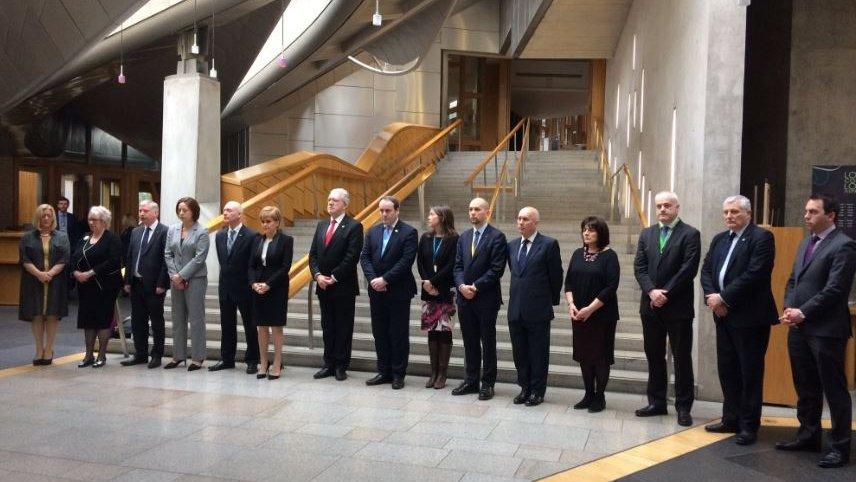
- Published23 March 2017
